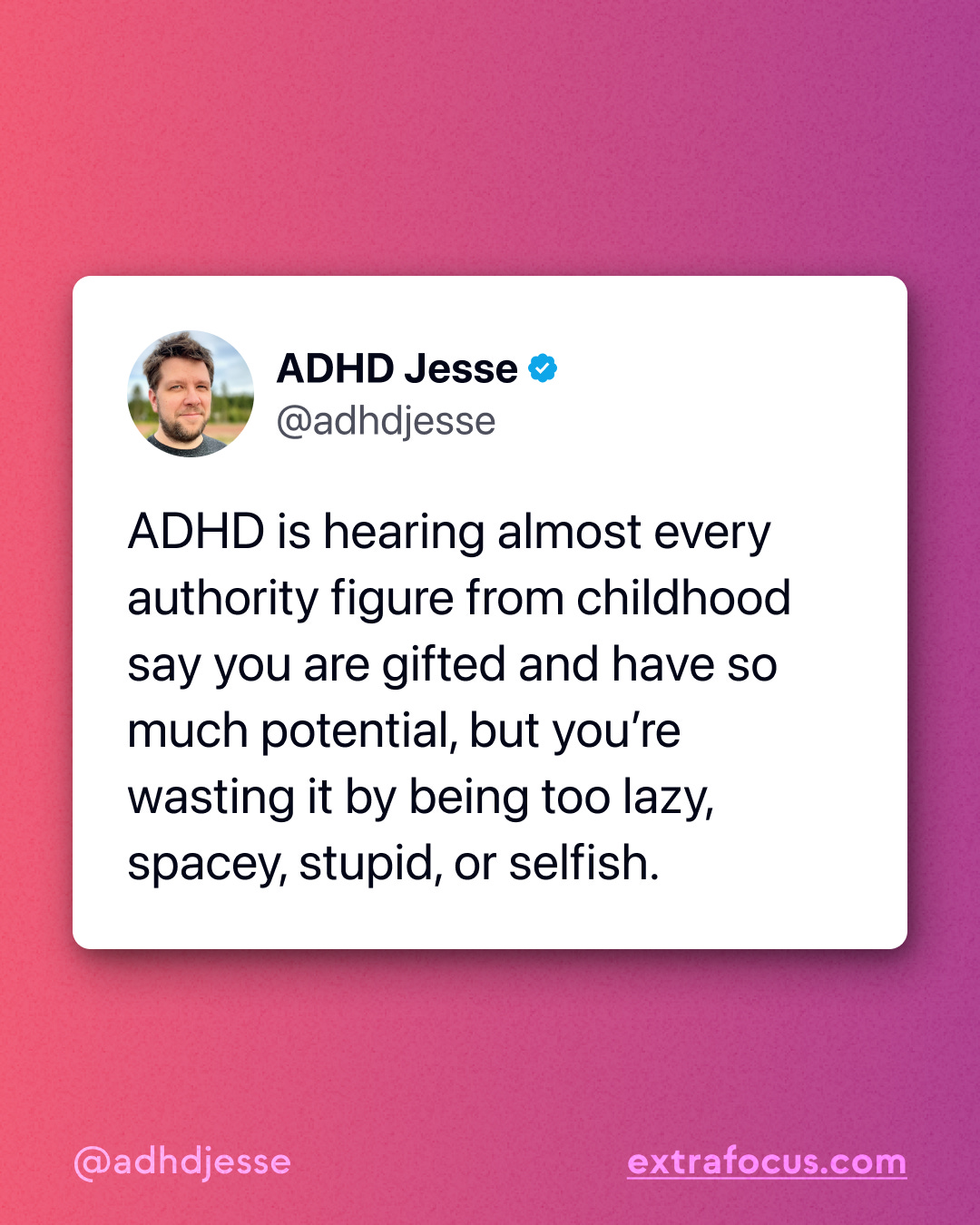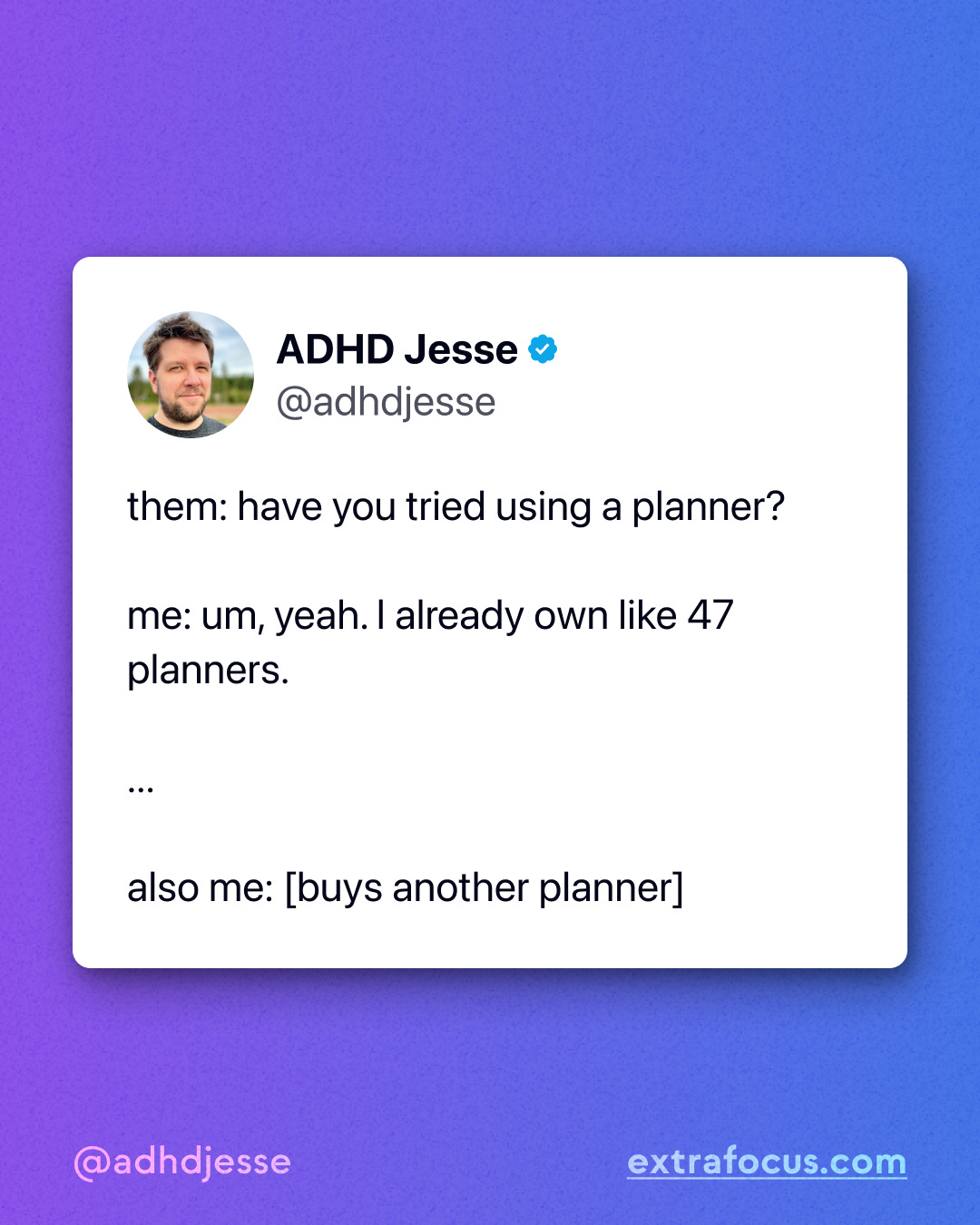ADHD Myths: Only Kids Can Have ADHD, Not Adults
Hey friend—this newsletter is supported by readers like you. If you love it or find value from it, consider becoming a paid supporter! You’ll unlock every article in the archive and gain full access to the Member Resource Hub. I didn't find out about my ADHD until I was 36 years old. I'd heard of ADHD, but what I’d heard didn't seem describe the way I felt so I never really looked into it. That kid that always got in trouble in Mrs. Rawlings class, he probably had ADHD, I thought. Not me though. When I finally found out that ADHD was something I might have, it was hard to find a therapist that would even see me about getting a diagnosis. I found some local ADHD specialists through my healthcare directory, but almost every therapist I talked to turned me away, saying they only saw children for ADHD. The reality is, ADHD doesn't go away on your 18th birthday. My experience isn’t unique—the myth of ADHD being only for children persists today and I often hear people that are denied even seeking diagnosis by their doctor who still believes the myth. The reality is, ADHD doesn't go away on your 18th birthday. It doesn’t help that many of the official ADHD symptoms seem to be written by adults that were annoyed by us when we were kids:
(yes, these are all real) This sort of thing causes people to avoid getting diagnosed at all, both because they might be embarrassed or because they don't even consider ADHD as a possibility for an adult. What does Adult ADHD look like?As adults, people with ADHD often have developed their own coping strategies they might not even be aware of, trying to overcome some of the difficulties they've faced because of their ADHD (diagnosed or not). The way our ADHD looks can change over time too. You may have been more outwardly hyperactive as a child (exhibiting the predominantly hyperactive-impulsive presentation), and as an adult shifted to a predominantly inattentive presentation. It may depend on what sort of job you have too. Your symptoms may show much differently at a job with a flexible schedule and clear expectations vs a job with a strict schedule, time sheets, etc. One big struggles of not finding out about your ADHD until much later in life is the years of blame that get cast onto you. You don't act the same way as your peers so everyone blames you and says things like "what is wrong with you?", thinking you're being difficult on purpose. It's been estimated that children with ADHD receive 20,000 more corrective or negative comments than their peers by the age of ten. This blame has to go somewhere, so it often turns directly into shame and damaged self-esteem. We can't explain why we act or think in a way that doesn't make sense to others, and we may become deeply embarrassed of how we are different and blame ourselves for the difficulties we experience. All of this has ramifications that stay with us for the rest of our lives. Because of the amount of self-blame we are used to experiencing, it can be easy for some to trick themself and think "I don't deserve to have ADHD. That would be too easy. This all must be my fault because I’m just [lazy/stupid/crazy/spacey/etc]" So what can we do about it? Personally, I think one of the best things you can do, if possible, is seek out a professional ADHD diagnosis. Even if you aren't planning to use medication—getting an official diagnosis helped me truly accept the reality of having ADHD. Another thing is to embrace the ADHD community and get to know others with ADHD so you realize you’re not alone with this. Social media used to be a great place for this, but it’s seemed to be harder lately as algorithms evolve. Extra Focus has a chat if you use the Substack app which can be a place to connect with others (paid members can start new threads, but anyone can reply to an existing thread). If you’re an adult who suspects you might have ADHD, don’t let this myth that “only kids get ADHD” hold you back from seeking help. Have you encountered this myth about ADHD? How has it affected your life or the lives of people you know? Share your thoughts and experiences in the comments below. Stay curious, ADHD Myths SeriesThis newsletter is supported by readers like you! Become a paid supporter to unlock every article in the archive and gain full access to the Member Resource Hub. |
Similar newsletters
There are other similar shared emails that you might be interested in:





